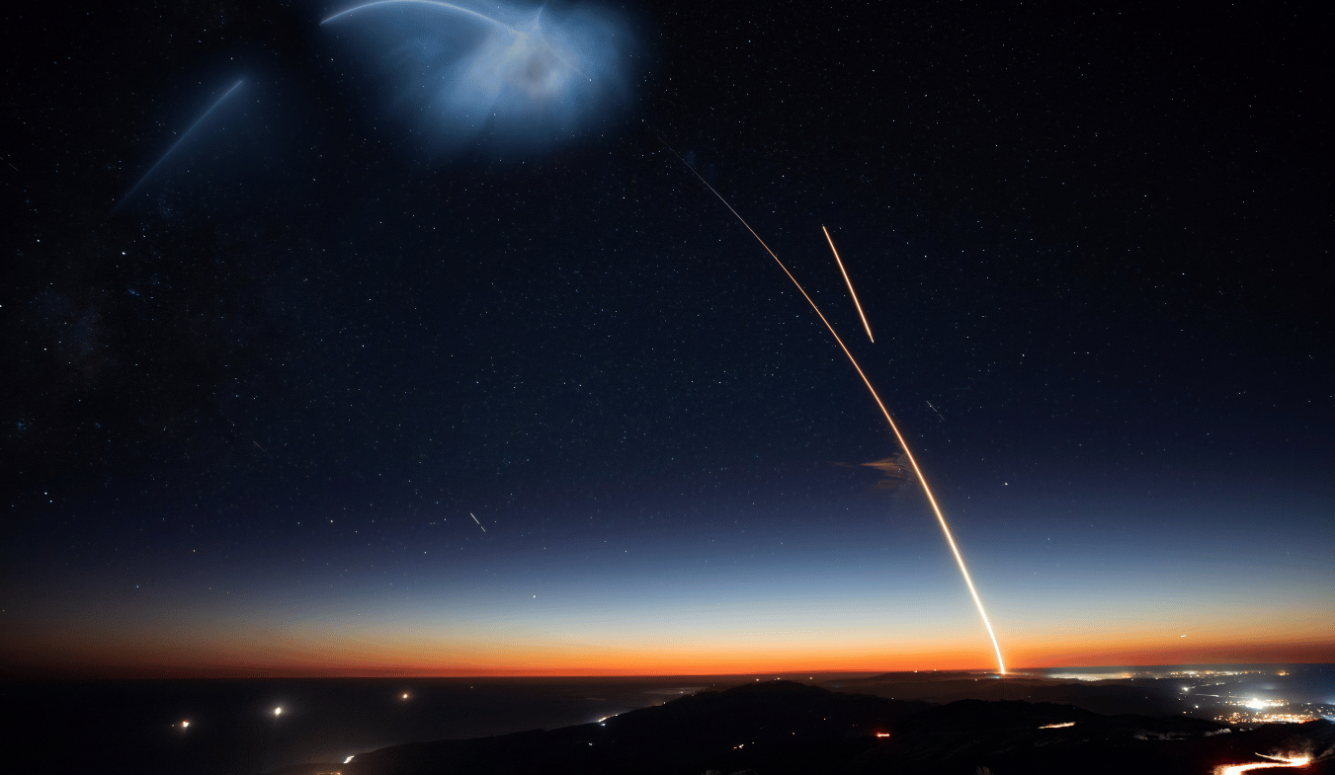Science / Tech
A Declaration of Decadence
Mary Jane Rubenstein’s real target in “Astrotopia” is not the corporate space race, but the very ideas of humanism and progress.

The French historian Fernand Braudel remarks in Out of Italy that “decadence” is what occurs in a civilization when it rejects the ideas and ideals responsible for its origin and growth. In her recently published book, Astrotopia: The Dangerous Religion of the Corporate Space Race, Mary-Jane Rubenstein, Professor of Religion and Science in Society at Wesleyan University, offers just such a bold rejection of everything that Western humanist civilization stands for or has ever stood for. If you think that the world has had quite enough of freedom, progress, science, and reason, this is the book for you.
Astrotopia: The Dangerous Religion of the Corporate Space Race - Next Big Idea Club Magazine https://t.co/qtUWMuMKAm
— Spac Exploration (@SpacExploration) December 6, 2022
Professor Rubenstein opens her book with an attack on space entrepreneurs Elon Musk and Jeff Bezos, whom she describes as representing the leading edge of a new tribe of robber barons planning to exploit and ruin the pristine solar system for their own greedy ends. However, her real target is not the corporate space race but the very idea that the development of other planets—or indeed our own planet—to meet human needs constitutes a positive goal.
In making this critique, Rubenstein draws from some of the later writings of the medieval historian Lynn White Jr. (1907–1987). White was a follower of the school of thought pioneered by earlier historian Charles Homer Haskins (1870–1937), who, in his seminal 1927 work The Renaissance of the 12th Century soundly refuted the commonly accepted Enlightenment conceit that the period between the fall of the western Roman Empire and the Italian Renaissance was a “dark age” during which little progress in the arts, literature, or anything else of much interest occurred. White backed up Haskin’s arguments for medieval cultural advances with detailed studies of extensive medieval progress in the invention and application of practical technology—including crop rotation, the lateen sail, the stirrup, the wheelbarrow, the spinning wheel, the hand crank, water-driven mills, and windmills—that advanced medieval Europeans far beyond anything achieved by the ancients.
But White took matters further in his seminal April 1940 Speculum article “Technology and Invention in the Middle Ages,” ascribing Western theology's “activist” tradition, its “implicit assumption of the infinite worth of even the most degraded human personality,” and its “repugnance towards subjecting any man to monotonous drudgery” to the West’s primacy in technology. It was these Christian ideas, White said, that drove medieval Europeans to their unprecedented feats of technological wizardry. “The chief glory of the later Middle Ages was not its cathedrals or its epics or its scholasticism: it was the building for the first time in history of a complex civilization which rested not on the backs of sweating slaves or coolies but primarily on non-human power.”
These insights were profound. But in 1967, White switched sides. Jumping aboard the growing environmental movement, he published a new essay, “The Historical Roots of Our Ecological Crisis,” in which he argued that it was precisely such Christian humanist–driven technological progress that was the problem:
We would seem to be headed toward conclusions unpalatable to many Christians … modern technology is at least partly to be explained as an Occidental, voluntarist realization of the Christian dogma of man’s transcendence of, and rightful mastery over nature. But … science and technology … joined to give mankind powers which, to judge by many of the ecologic effects, are out of control. If so, Christianity bears a huge burden of the guilt.
Rubenstein picks up on White’s call to abandon the Judeo-Christian idea of human dominion over nature, but she is far braver than White in taking his rejection of human worth to its logical conclusion. White proposed an alternative ethic based on the notion of “the equality of all God’s creatures.” I don’t think that could work. As my then 10-year-old daughter, Rachel, once brought to my attention, “Everything we eat was once alive.” But, no matter. Rubenstein insists we need to not only avoid harming other living creatures but also inanimate matter as well.
She writes:
“As the philosopher Holmes Rolston III puts it, we keep asking how to make outer space into ‘resources’ which is to say how ‘this astronomical world can belong to us,’ when what we should be asking is ‘how we belong to it,’ and ‘whether it belongs to itself.’
“How we belong to it [italics in original]. How we might live thoughtfully in our tiny place in the infinite cosmos. How might we ask what it needs from us rather than what we want from it.
“Whether it belongs to itself. Whether asteroids might prefer that we core them out for profit. Whether Mars and the Moon might not, in fact, be up for grabs. Whether rocks themselves have rights.”
If rocks have rights, then surely erosion is a crime. How can Nature be held accountable for such misdeeds? According to Herodotus, the Persian King Xerxes reportedly whipped the waters of the Hellespont when they misbehaved. Yet the efficacy of such action is doubtful.
Rubenstein is aware that some people might not be on board with her train of thought on these matters, and she singles out yours truly as a representative of the opposing school.
“To someone like Zubrin,” she says, “this sort of thinking is insane. The Moon, he says, has no ‘right to remain unchanged.’ In fact it has no rights at all, because ‘clearly the Moon is a dead rock. It cannot do anything, or desire to do anything.’”
I have to give it to Professor Rubenstein; her summary of my view on this issue is 100 percent accurate. However, her refutation of my view seems weak to me. According to Rubenstein, the personhood of the Moon is demonstrated by the fact that its rocks contain records of past events, and its dust can harm astronauts. Therefore the Moon has both memory and agency. “In fact, the Moon might even desire things,” she says. “Considering the respiratory trouble it’s given our astronauts and the functional trouble it’s given their machines, the Moon might well be expressing a geologic desire that human beings remain on their home planet.”
It would indeed be impressive if this were so, as it would require the Moon to have not only memory, agency, and desire, but also the foresight to have developed its anti-respiratory dust defense system billions of years before humans evolved on Earth. But I don’t think Rubenstein’s theory holds together. After all, if the Moon were so smart as to do that, why did it choose to position itself so close to Earth, making itself an easy target for invasion? It just doesn’t make sense.
Rubenstein claims to care about the cause of social justice and attacks the effort to open the space frontier, from the Apollo program onward, as being in opposition to that goal. Yet her claims do not bear scrutiny, and not only because, in point of fact, America achieved its greatest advances in racial equality since the Civil War precisely during the period of its reach for the Moon. The greater problem with Rubenstein’s argument is that the idea of the special worth of humans—whether in religious guise as the image or children of God or stated in secular terms as natural law without the use of a theistic hypothesis—that she so ardently attacks is the foundation for the very concept of fundamental human rights.
If humans are not held to be of infinitely greater worth than animals, let alone microbes or rocks, then there is no moral reason why they cannot be oppressed without limit by anyone forceful enough to do so. Disturbingly, Rubenstein repeatedly and favorably quotes the proto-Nazi philosopher Friedrich Nietzsche, who won the approval of the genocidal masters of the Third Reich precisely because he dismissed such ethical constraints as mere mystical chains that inferior people would put on their superiors. How anyone can claim to be for social justice while denying the intrinsic value of human beings is beyond me.
The idea of the divine nature of the human spirit that Rubenstein holds in such contempt is also the basis of science. As the great Renaissance astronomer Johannes Kepler said, “Geometry is one and eternal, a reflection out of the mind of God. That mankind shares in it is one reason to call man the image of God.” The entire scientific enterprise is based on a conviction that the human mind has the capacity to discover the laws of causality governing the universe using the power of reason. Rubenstein rejects this, holding that non-causal ad hoc explanations and superstitions regarding natural phenomena, which she dignifies with the term “Indigenous Knowledge,” are of equal value to science.
Rubenstein also makes a number of factual errors in her book. For example, she states repeatedly that humans have destroyed the Earth. This can’t be true. I know this because I have been to Earth—in fact, I’m there right now, and have been for the past 71 years—and I am willing to testify under oath that it has not been destroyed. Not only that, it is a much nicer place to live today than it was when I first arrived.
This vast improvement in living conditions across almost the entire Earth can be demonstrated in every relevant metric, including not only human material wellbeing, environmental cleanliness, public health, personal liberty, and, yes, most especially, gender and racial equity.
Strange to say, but this was accomplished through the continued pursuit of human knowledge of and dominion over nature, precisely the program of building a “complex civilization which rests not on the backs of sweating slaves or coolies but primarily on non-human power” that Rubenstein chooses to condemn.
Musk, Bezos, and all the rest of us trying to establish new creative branches of human civilization on other worlds may or may not succeed. But we are carrying the banner of a noble cause—one responsible for creating humanity’s greatest cultural, political, scientific, and technical achievements. Rubenstein calls that cause a “dangerous religion.”
She’s not the first to see it that way.





